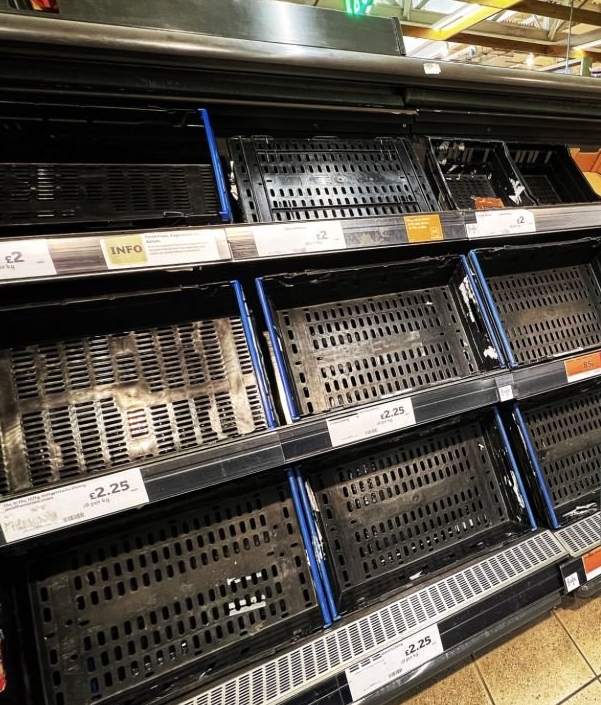Are We Ready for a 3-Day Countdown? Lessons from the UK Civil Food Resilience Report

As rural business management consultants at ARC, we support rural businesses in resilience and sustainability. The National Preparedness Commission’s report, Just in Case: 7 Steps to Narrow the UK Civil Food Resilience Gap, raises a critical question: Are we ready for a 3-day countdown if a food crisis hits? Rural businesses play a vital role in the UK’s food system and must be prepared.
The UK faces increasing vulnerability to food system shocks, yet public preparedness is low. The Deputy Prime Minister’s May 2024 advice to store three days’ worth of food highlighted this issue. For rural businesses, this is not just a national concern—it has direct local implications.
The 3-Day Challenge: A Reality Check
For many, stockpiling three days of food is unrealistic due to financial constraints. The UK’s reliance on a just-in-time food supply chain leaves little buffer. Covid-19 exposed these weaknesses, exacerbated by Brexit, labour shortages, and import reliance. Rural businesses in food production and distribution experienced firsthand the pressure of disrupted supply chains. How prepared is the UK for a more prolonged crisis?
Key Lessons for Rural Businesses
The report’s seven steps highlight ways to strengthen resilience. Three stand out for rural businesses:
Map Community Food Assets: Rural areas hold untapped food production potential, but agricultural land is under pressure from development and environmental policies. Businesses must identify and protect land for sustainable food production by supporting community farming initiatives and advocating for land-use policies.
Empower Local Authorities: Local councils need greater resources and legal powers to develop food resilience plans. Rural businesses can collaborate with authorities to promote sustainable farming practices, such as regenerative agriculture, which enhances soil health and food production capacity.
Create Local Food Resilience Committees: These committees can coordinate preparedness efforts by repurposing unused land for food production, strengthening local supply chains, and promoting sustainable farming. Rural businesses, with their community ties, are well-positioned to lead these initiatives.
The Challenges: Land Availability and Sustainable Food Production
The availability of agricultural land is an increasing concern as competition grows from housing, infrastructure, and environmental initiatives. Sustainable food production must be prioritized to ensure long-term food security. Rural businesses can lead efforts by adopting regenerative farming practices, advocating for policy protections, and maximizing land use efficiency.
The State of UK Agriculture
UK agriculture faces mounting challenges, from economic pressures to changing environmental regulations. Brexit and trade disruptions have impacted farming sustainability, while climate change and labour shortages further strain production. Addressing these issues requires a concerted effort to balance sustainability with productivity, ensuring rural businesses can remain viable while contributing to national food security.
Supporting a Broader Strategy
Beyond these three lessons, rural businesses can contribute to:
- National Policy Development: Advocate for policies supporting sustainable food production, reduced import reliance, and agricultural land protection.
- Public Preparedness: Support local audits of food assets and preparedness levels.
- Shifting Supply Chains: Transition from just-in-time to just-in-case models through local storage and distribution investments.
The Role of Rural Businesses
Land availability and sustainable food production are central challenges. Increasing competition for land threatens UK agriculture, while the need for sustainable practices grows. Rural businesses can lead the way by investing in regenerative farming, supporting local food networks, and reducing food system carbon footprints.
A Call to Action
The 3-day countdown is not a hypothetical scenario—it’s a real risk. Rural businesses must act now to diversify production, strengthen local supply chains, and support community resilience. Waiting for a crisis is not an option. By implementing strategic solutions today, we can build a more secure food future.
Are we ready for a 3-day countdown? Not yet. But rural businesses can lead the way to get us there.

